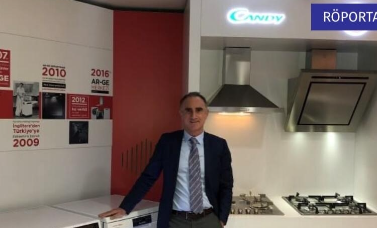
Could you please assess the year 2020 in terms of the global pandemic, the industry in general, and therefore your company specifically?
2020 has been a tough year for the Industry in general and for the Durable Goods in particular, with huge swings in demand which stressed the Supply Chain to the limits; not to mention the health issues and the physical limitations that affected workers’ mobility and efficiency. Since the pandemic outbreak early this year, we have been working closely with health authorities to protect the health and safety of our employees and our communities, as our top priority. At the same time, we have always been working around the clock to plan safely and guarantee business continuity and in operations to achieve our targets and execute the company’s clear growth strategy for Europe and its ambition to become among the top three leaders by 2023.
What are your forecasts for 2021 regarding the changing customer demands, the market volume growth, and production and investment plans?
The current environment is very uncertain and it’s difficult to predict or make forecasts. We can somehow expect for 2021 a continuity of the trend we are seeing in the last quarter of 2020 in terms of market demands for durable goods. For sure, the COVID-19 emergency, forcing people to stay at home and increase the use of digital devices and appliances, accelerated this trend. The company is fully equipped for this as IoT and connectivity are at the core of our strategy, which has now entered in a further step, that is, developing and creating IoT ecosystems with our partners. Our ambition is to transform our industry and our philosophy from products to scenarios, giving consumers a premium and tailor-made experience.
What kind of a change do you expect to happen in the production and supply processes, and market and demand structures of your company and industry in the medium run? What kind of technologies and products do you consider will prove to be critically essential in the medium run?
We are faithful to our motto ‘Zero distance to customers’, which means quicker response to all customer needs, including meeting demand flexibility, implementing shorter supply chains, introducing easy-to-use products, providing services that make consumers’ lives easier. Connectivity is part of this strategy as we are committed to enrich our offer with more and more connectivity features added to our products.
Considering Turkey’s place in the global value chain, what are the advantages/ disadvantages of Turkey and our industry?
We are assisting to a rotation in the Supply Base that is in the direction of relocating businesses closer to customers. In this context, Turkey is playing a key role in this process as an industrially solid and reliable country close to the reference markets. We see an enormous potential of growth for Turkey in the middle/long term. The most important challenge that the country is facing in order to catch this favourable trend is to fill a widening the gap in the capacity of attracting and keeping investments.
For taking actions to use the opportunities and to take measures against risks, what should be done on the level of country, industry and companies?
All strategic risk analysis show that supply chains must be shortened whenever possible, Supply Base must be rebalanced to secure operations and business continuity while maintaining competitiveness and quality levels. This is a trend that will be implemented in all industry sectors but that must be supported by all Institutions by facilitating investments and fulfilling market demands for high skilled resources.
What are your expectations of your suppliers to adapt to such changes?
In general our suppliers have reacted promptly to the adversities and have been supportive of our business to the maximum degree showing outstanding flexibility. I am sure we will continue on this path, but we expect suppliers to be able to invest and grow along with us in the middle/long term. Investments in technology, production capacity and especially valuable resources are the key success factors to support a sustainable growth.
What do you think BEYSAD should do in this period? Do you propose any ideas for events and activities?
Pandemy showed us once more that, in a time of crisis, the companies that stand over the others are the ones who have access to high skilled resources. All institutions, including Beysad, should address their efforts to facilitate the access to such resources, with special reference to small and middle companies which are the backbone of Turkey’s industrial footprint and are too often suffering the lack of resources.







